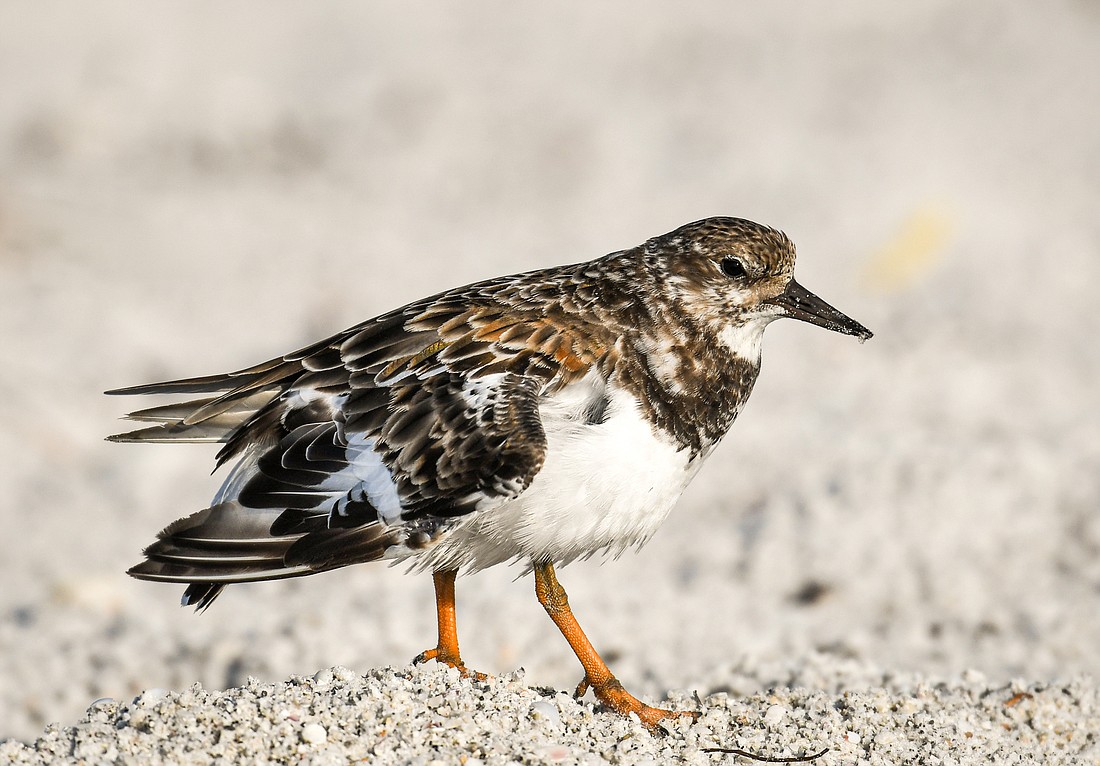- February 5, 2026
-
-
Loading

Loading

With their chestnut plumage, and black and white markings, ruddy turnstones stand out among the other sandpipers you'll see on our beaches. You'll also easily spot these stocky shorebirds, energetically feeding along the wrack line (the line of debris left on the beach by high tide) with a foraging style all their own. As indicated by their names, ruddy turnstones use their sturdy beaks to turn over stones, shells, seaweed and other objects, in quest of food (mostly invertebrates, including insects).
In addition to their camouflage patterning, which allows them to blend into the environment as they forage among rocks and debris, ruddy turnstones have another useful adaptation. To help them walk on slippery rocks and other coastal surfaces, their feet are spiny and their short toenails are sharply curved. And though small, these migratory birds, that travel long distance to the arctic tundras to breed, are fast! Flying at speeds between 27 and 47 mph, they can fly up to 620 miles a day.
Like many of our birds, ruddy turnstones are threatened by contaminated waters, which directly threaten their health and the health of their food sources. And, as migratory birds that rely on predictable climate patterns for food and breeding, climate change is a concern.
We can help by keeping beaches and waterways clean, and not removing wrack lines, which are an important source of food for them, and many birds. And when you see turnstones flipping shells and seaweed on our beaches, please give them space, so they can gain the strength (and fat reserves) they need to fly off to their next destination.
Save our Seabirds is a non-profit organization whose mission is to rescue and rehabilitate sick and injured birds, releasing as many as they can, while educating our community about avoiding injuries and preserving habitats.